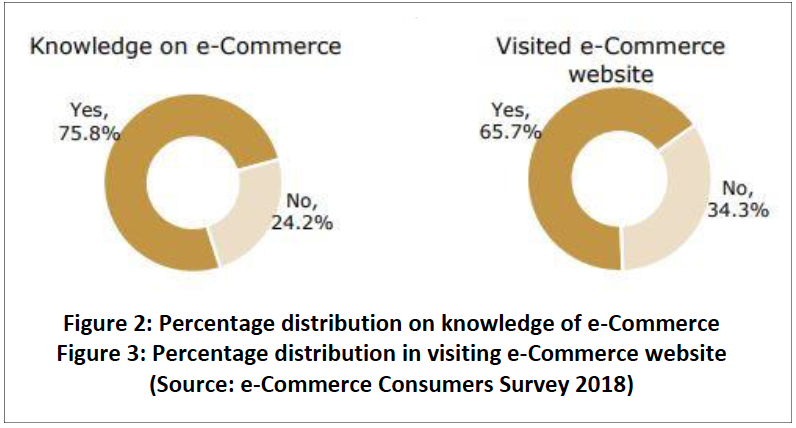Over 50% of Malaysians use e-commerce platforms: MCMC survey
By Digital News Asia June 4, 2019
- Malaysia has the second highest number of e-commerce consumers in SEA
- Competitive pricing is a main attraction for 73% of e-commerce consumers

THE e-Commerce Consumers Survey 2018 (ECS 2018), released by the Malaysian Communications and Multimedia Commission (MCMC) on June 3 revealed that 51.2% of Malaysians used e-commerce platforms to shop and sell online in the past 12 months.
In the World Bank Group 2018 report, Malaysia came in at number two in the Southeast Asian region after Singapore in terms of percentage of e-commerce users.

At the state level, Wilayah Persekutuan Putrajaya topped the list of e-commerce adoption at 70.5%, followed by Wilayah Persekutuan Labuan and Perlis at 60.5% and 44.5% respectively.

The survey found that women are more likely to conduct e-commerce activities (53.9%) compared to men (48.8%), with clothing and accessories being the most popular products purchased.
Even though the percentage of men utilising e-commerce is lower compared to women, in terms of value however, men spent more than women in the last 12 months at an average of RM690, compared to RM450 for women.
This finding can be largely attributed to the type of products purchased by men who tend to buy computer software and equipment, as well as automotive parts.
When asked why they choose to shop online, 84.4% of e-commerce users cited the convenience and comfort of accessing various online shopping platforms at their own place and time as being motivating factors.
Competitive pricing is a main attraction for 73% of e-commerce consumers. This is encouraged by various strategies by online retailers to attract consumers such as discount vouchers, festive sales, cash rebates, member privileges, and others.
Furthermore, various types of payment methods such as online banking is another key reason why consumers shop online. Among the preferred payment methods are e-money facilities such as Boost, WeChat Pay and Touch 'n Go eWallet. Even though the adoption of these payment methods is still low, MCMC expects that the percentage will increase in the future, as more e-commerce platforms start offering this option.
This survey also revealed that 78.3% of consumers use smartphones to purchase goods and services online. The ability to download e-commerce apps makes smartphones the preferred choice when it come to online shopping, especially among those below 30 years of age.
Social media is important for consumers to collect information on products or services before they make a transactions with 44.1% using these platforms to seek out and validate product quality to avoid from being scammed.
Despite the high awareness of e-commerce, ECS 2018 also found that more than half of online shoppers are concerned about security and privacy when shopping online. Concerns regarding security have emerged in terms of credit card fraud, fake online retailers, banking details theft, identity theft, and trust issues.
Among these threats, fraudulent activities including credit and debit card fraud appear to be the highest concern according to 63.9% of online shoppers. In terms of privacy, 82.7% of shoppers indicated that they are very concerned about the exposure of their personal details while 70% are worried about their personal data being misused for marketing purposes.
MCMC chief corporate officer Mohd Ali Hanafiah Mohd Yunus said that managing consumer trust and privacy in every part of the e-commerce value chain is very important to sustain the sector. Apart from strengthening cyber-security and risk policies to manage security
and privacy risks perception, smart delivery options and customer-centric return policies will also instil confidence and encourage e-commerce adoption.
“Undertaking ECS annually is important to understand the behaviour of e-commerce consumers as well as identify current e-commerce trends in Malaysia. The survey will also provide a higher level of granularity of data in measuring key dimensions of the digital economy in Malaysia. At the same time, the latest e-commerce data is important to facilitate policy-making in this area to benefit the rakyat.”
The survey was held for three months from Aug 28 to Nov 27, 2018 through phone interviews. Respondents were randomly selected and involved 5,348 people from all over the country.
For more details on ECS 2018, click here.
Related Stories :


